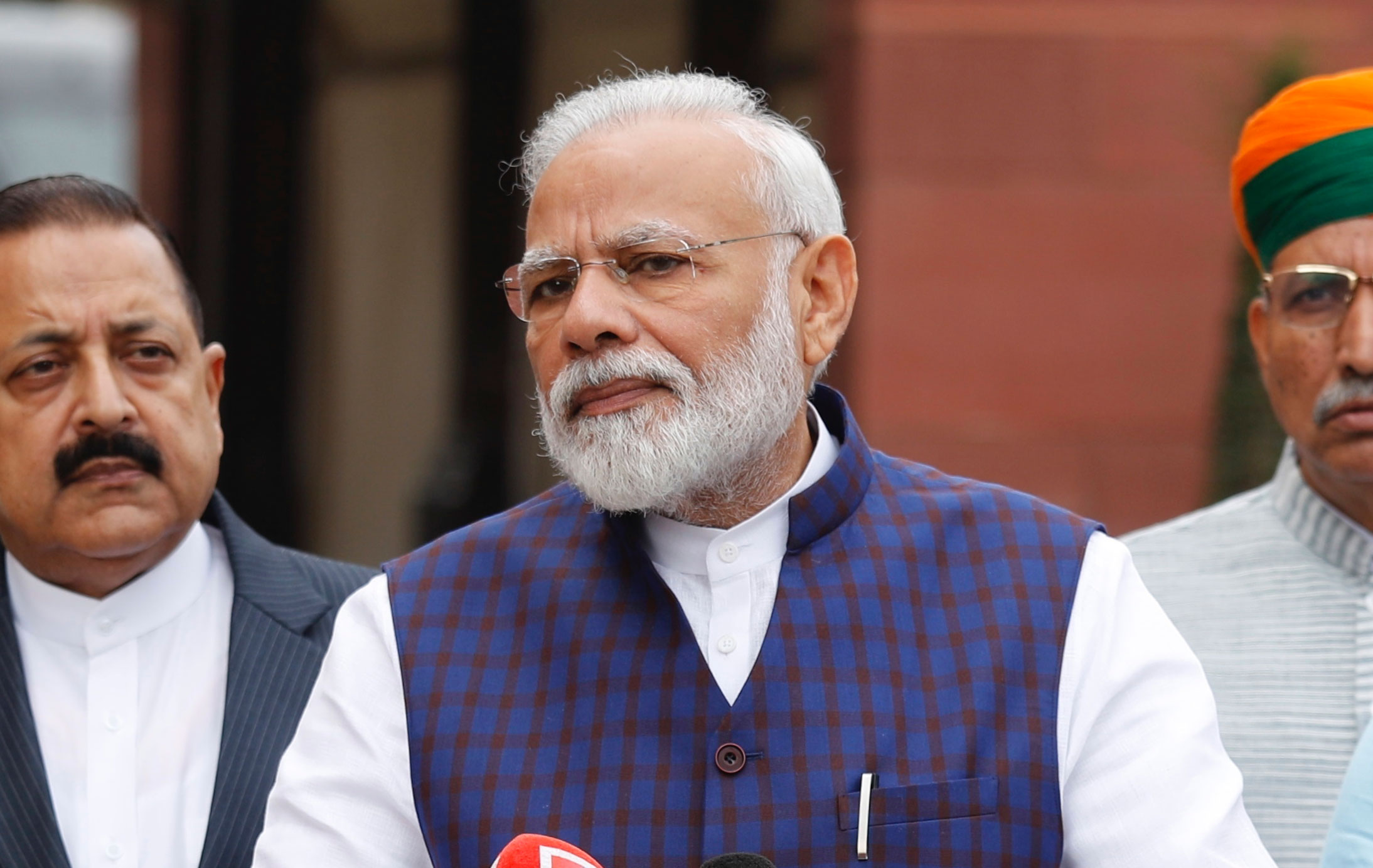The Nanavati Commission has given a clean chit to the Narendra Modi-led government in the 2002 riots.
The commission’s report was tabled in the Gujarat Assembly by minister of state for home Pradeepsinh Jadeja on Wednesday, five years after it was submitted to the then government and 17 years after the riots took place. Nearly 2,000 people, mostly Muslims, were feared to have been killed in the riots.
The panel of former Supreme Court judge G.T. Nanavati and former Gujarat High Court judge Akshay Mehta observed that police at some places were ineffective in controlling the mob because of inadequate numbers or because they were not properly armed.
“There is no evidence to show that these attacks were either inspired or instigated or abated by any minister of the state,” the commission said in its voluminous report.
The commission was appointed in 2002 by Modi, who was then chief minister, to probe the riots that took place after two coaches of the Sabarmati Express train were set on fire near the Godhra railway station, in which 59 karsevaks were killed.
“On an overall consideration of the entire material, the commission finds that the communal riots which followed the Godhra incident were really by way of an aftermath of that incident,” the report said.
“It was because of the Godhra incident that large sections of Hindu community became very angry and ultimately indulged in violent attacks on Muslims and their properties,” the report said.
The commission said it did not find any evidence against “any religious or political party or organisations as such” in connection with the riots.
“The only thing that can be said with some certainty, on the basis of evidence which has come before the commission, is that local members of the VHP and Bajrang Dal took part in the incidents which happened in their localities,” the panel said.
The commission said the post-Godhra riots were “not a pre-planned conspiracy or orchestrated violence”.
There is no substance in the allegations against state authorities turning a blind eye to the post-Godhra riots, it said.
The commission also questioned the credibility of three former IPS officers — Sanjiv Bhatt, Rahul Sharma and R.B. Sreekumar — who had alleged that the state government had a role in the riots. After close scrutiny of the evidence, it is not possible to say that there was any negligence on the part of police, the report noted.
However, it is very much necessary that the state has a disciplined police force to ensure that peace and tranquillity of the society is not disturbed, it added.
“While considering the evidence relating to the incidents which happened during the communal riots, we have noticed that the absence of police or their inadequate number emboldened the mobs to indulge in violence,” the report said.
On certain incidents of riots in Ahmedabad city, the commission said: “The police had not shown their competence and eagerness which was necessary.”
The report has recommended inquiries or action, which were halted after the commission was formed, against the erring police officers.
It said the authorities should see that the media acts with restraint during such difficult times, and that immediate effective action should be taken against the media if it is found to be transgressing the limits.
The media should ensure that it does not become instrumental in provoking more communal violence by publishing exaggerated reports about the incidents, the panel said.
The first part of the commission’s report was tabled in the Assembly on September 25, 2009. The panel submitted the final report on November 18, 2014, to then chief minister Anandiben Patel, but it was withheld since then.
The BJP-led state government in September this year told Gujarat High Court that it would table the report in the next Assembly session. It was responding to a PIL filed by former IPS officer Sreekumar, seeking a directive to the state government to make the report public.
In February 2002, chief minister Modi had announced a one-member commission to inquire into the cause of the Godhra train carnage and the subsequent communal violence in the state. The government later reconstituted the commission, with Justice Nanavati as its chairman and former Gujarat High Court judge K.G. Shah as a member. After Justice Shah died, Justice Mehta took his place.
The government also expanded the terms of reference of the commission, bringing under its purview the role and conduct of the chief minister, ministers and police officers during the riots.










